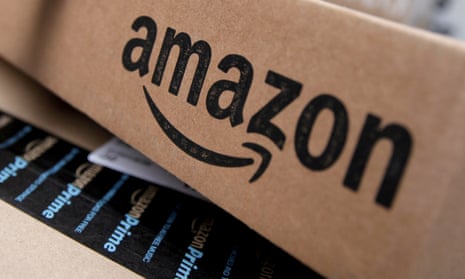Global giants such as Amazon and Apple should be made responsible for helping to collect, recycle and repair their products to cut the 155,000 tonnes of electronic waste being thrown away each year in the UK, MPs say.
An investigation by the environmental audit committee found the UK is lagging behind other countries and failing to create a circular economy in electronic waste. The UK creates the second highest levels of electronic waste in the world, after Norway. But MPs said the UK was not collecting and treating much of this waste properly.
“A lot of it goes to landfill, incineration or is dumped overseas. Under current laws producers and retailers of electronics are responsible for this waste, yet they are clearly not fulfilling that responsibility,” the MPs wrote.
About 40% of the UK’s e-waste is sent abroad, according to estimates – something the MPs point out is often done illegally.
The tsunami of electronic waste was throwing away valuable resources vital to a sustainable future, the report published on Thursday said.
Globally, thrown-away computers, smartphones, tablets and other electronic waste have a potential value of $62.5bn each year from the precious metals they contain, including gold, silver, copper, platinum and other critical raw materials such as tungsten and indium.
MPs accused online retailers including Amazon and eBay of freeriding as they are not considered retailers or producers, and are therefore not legally liable to contribute to the collection and recycling of e-waste.
“For all their protestations of claimed sustainability, major online retailers and marketplaces such as Amazon have so far avoided playing their part in the circular economy by not collecting or recycling electronics in the way other organisations have to,” MPs said.
“Given the astronomical growth in sales by online vendors, particularly this year during the coronavirus pandemic, the EAC calls for online marketplaces to collect products and pay for their recycling to create a level playing field with physical retailers and producers that are not selling on their platforms.”
The report by MPs condemns the “built-in obsolescence” in many electronic products – which includes the practice of intentionally shortening the lifespan of products. The inquiry by MPs heard that tech companies such as Apple had been found to glue and solder together internal components, making any repair nearly impossible.
MPs said consumers did not have control over the products they owned, they could not take components out to repair themselves and there were no access manuals on how issues could be fixed. “Instead, the charges proposed for repair by Apple in particular can be so expensive it is more economical to replace the item completely,” the report said.
“Tech companies should now take the lead in creating sustainable and environmentally friendly business models that do not rely on the over exploitation of nature and natural resources.”
The report calls for:
The right to repair to be enshrined in law.
A reduction in VAT on the repair of electrical and electronic products, as takes place in other countries.
All producers to be forced to collect products and pay for their recycling.
Ambitious long-term targets for collection, reuse and recycling of e-waste to focus on reducing consumption and capturing and retaining vital raw materials.
Apple said: “We were surprised and disappointed with the Environmental Audit Committee’s report, which does not reflect any of Apple’s efforts to conserve resources and protect the planet we all share. There are more options for customers to trade in, recycle and get safe, quality repairs than ever before, and our latest Apple Watch, iPad, and iPhone lineup all use recycled material across key components. We will continue to work with parliament and the government to document Apple’s industry-leading commitments and to support our common effort to leave a clean economy and a healthy planet for the next generation.”
Libby Peake, the head of resource policy at the Green Alliance thinktank, said the report was impeccably timed. “Just before the Christmas shopping season gets going, the environmental audit committee has reminded us that many of the products we buy in the UK are destined not to last – which is a scandal for consumers as much as for the environment.
“More importantly, it has identified what we need to do to change this and make sure people can buy long-lasting products as well as have the right to repair them.”
An Amazon spokesperson said: “Amazon is committed to minimising waste and helping our customers to reuse, repair, and recycle their products, and we provide a range of options that anyone can easily access through the Amazon Second Chance website.
“We have supported the recycling of more than 10,000 tonnes of electronic waste in the UK over the last decade.”
